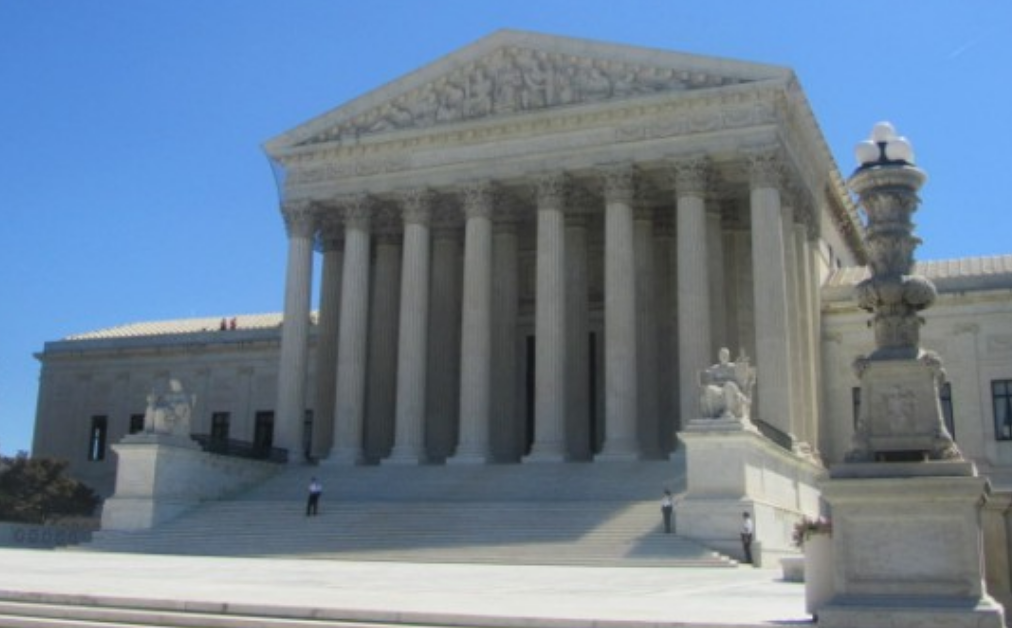
- Details
- By Levi Rickert
WASHINGTON — The U.S. Supreme Court today issued a 6-3 decision in Yellen v. Confederated Tribes of the Chehalis Reservation, et al., holding that Alaska Native Corporations (ANCs) are included in the definition of “Indian tribes” under the Indian Self-Determination and Education Assistance Act (ISDA) and thus eligible for funding under the Coronavirus Aid, Relief, and Economic Security (CARES) Act.
The CARES Act allocated $8 billion for tribal governments to respond to the Covid-19 pandemic. The language used in the CARES Act defined “Tribal governments” as the recognized governing body an Indian Tribe.
Want more Native News? Get the free daily newsletter today.
To the dismay of several federally recognized tribes, recommendations by the U.S. Departments of Treasury and the Interior provided funds to Alaska Native Corporations. As the result over 20 tribes filed lawsuits to disallow the funds being distributed to Alaska Native Corporations that are not federally recognized tribes.
In today’s ruling, the Supreme Court “does not ‘vest ANCs with new and untold tribal powers,’” but rather “confirms the powers Congress expressly afforded ANCs and that the Executive Branch has long understood ANCs to possess.”
The CARES Act definition of "tribe" relied on the definition used in the Indian Self-Determination Act (ISDA). a 1975 law that allows tribes to contract with the U.S. government to provide health care, housing and other services that federal agencies used to provide.
The Navajo Nation was one of the tribes that participated in the lawsuit against the Treasury Department. Navajo Nation President Jonathan Nez voiced his disappointment for Friday’s Supreme Court’s ruling.
Nez said the ruling undermines the status of federally recognized tribes with consequences beyond the allocation of the CARES Act funds to the ANCs.
“We have a strong coalition of tribes that are disappointed in the Supreme Court’s ruling. This case was never about the funds. Instead, it was about upholding tribal sovereignty and the status of federally-recognized tribes. Many tribal nations have had to fight hard over the course of many years to gain federal recognition to be eligible for programs and services that ultimately benefit our people across Indian Country,” Nez said.
“We as federally-recognized tribes will continue to stand strong and advocate for our tribal nations. I recommend that Congress clarify that Alaska Native Corporations are not federally recognized tribes under the Indian Self-Determination and Education Assistance Act to avoid this issue in the future,” Nez continued.
“We must continue to all work together with the United States to actively to support Nation-to-Nation relationships,” Fawn Sharp, president of the National Congress of American Indians said.
“The relationship between Tribal Nations and the federal government was born out of conflict and it has fallen upon every generation to carry forward our inherent tribal sovereignty to serve our tribal citizens. NCAI looks forward to continuing our work representing tribal governments and working with Alaska Native Corporations, tribal partners, and other allies to ensure that the United States meets its treaty obligations and its trust responsibilities to moving forward.”
More Stories Like This
Native News Weekly (August 25, 2024): D.C. BriefsUS Presidents in Their Own Words Concerning American Indians
This Day in History — Dec. 29, 1890: Hundreds of Lakota Killed During the Wounded Knee Massacre
Monday Morning (December 29, 2025): Articles You May Have Missed This Past Weekend
Native News Weekly (December 28, 2025): D.C. Briefs
Help us defend tribal sovereignty.
At Native News Online, our mission is rooted in telling the stories that strengthen sovereignty and uplift Indigenous voices — not just at year’s end, but every single day.
Because of your generosity last year, we were able to keep our reporters on the ground in tribal communities, at national gatherings and in the halls of Congress — covering the issues that matter most to Indian Country: sovereignty, culture, education, health and economic opportunity.
That support sustained us through a tough year in 2025. Now, as we look to the year ahead, we need your help right now to ensure warrior journalism remains strong — reporting that defends tribal sovereignty, amplifies Native truth, and holds power accountable.
 The stakes couldn't be higher. Your support keeps Native voices heard, Native stories told and Native sovereignty defended.
The stakes couldn't be higher. Your support keeps Native voices heard, Native stories told and Native sovereignty defended.
Stand with Warrior Journalism today.
Levi Rickert (Potawatomi), Editor & Publisher

